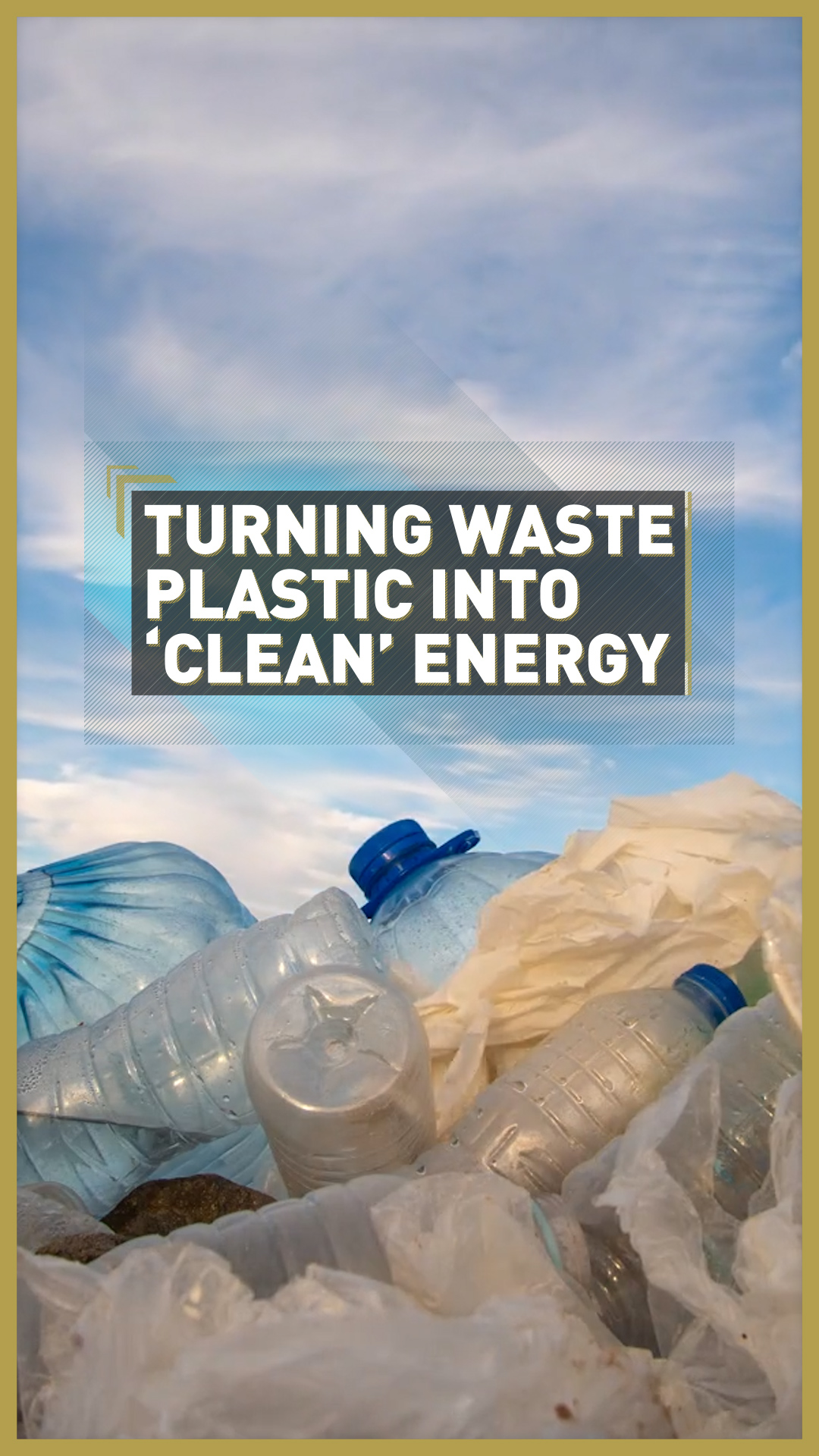01:56

Hydrogen's potential as a clean, non-CO2 emitting fuel has long been recognised. Now a cheap new way to make it has been developed by Oxford scientists – with the added benefit of using up plastic waste.
One of the biggest challenges in the production of hydrogen is the cost of separating it from hydrocarbons by using extreme temperatures of more than 750C – but this has now been carried out quickly and economically in a laboratory using microwaves.
Peter Edwards, professor of Inorganic Chemistry at Oxford University, says it is the "most exciting project" of his career, with companies and finance houses keen to get on board as they look to scale up the lab experiment.

A big environmental plus of the new method is that it uses plastic rubbish including bags and bottles.
The plastics are heated along with an iron oxide and aluminium oxide catalyst, and the benefit of using microwaves is that they heat up quicker and more directly to split the hydrogen from the carbon in the plastics.
"We came upon the idea of using microwaves because in my former experience we'd actually known that... small metallic particles are amazing absorbers of microwaves," said Edwards, who is leading the work, along with colleagues Xiangyu Jie "Michael" and Xiao Tiancun.
"In fact, the first generation of cell technology was based on small particles of iron. It's now based on carbon. So we knew that small metallic particles are amazingly effective absorbers of microwaves.
"We started to look at a whole range of different hydrocarbons all the way from wax through fossil fuels, even crude oils and lo and behold, hydrogen comes off very easily."
Edwards says the speed with which the hydrogen is created makes the project particularly interesting.
"We had a visit from the Nobel laureate Roger Tsien a few years ago, a lovely man.......We took him in the lab to show him this and... he was absolutely blown away.
"He said, my God this is a revolution and what he liked in particular was the idea it was instantaneous, you know, you're not sitting there with an oven waiting for that stuff to heat up. In fact, we got him to turn on the microwaves and the bubbles came off and he turned it off and they stopped."